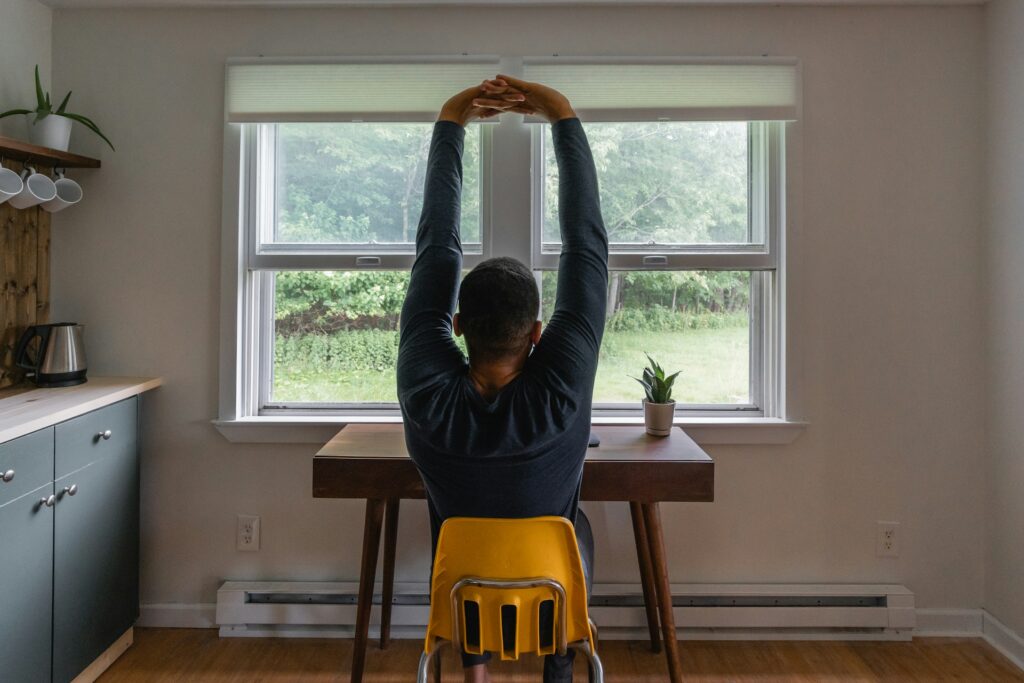When you think about taking time off from work or school, what comes to mind?

For most people, it’s a cold, a sore back, or just general physical exhaustion. However, there’s something equally important that doesn’t always get the attention it deserves: your mental health. The truth is, mental health days are just as vital as physical health days, and here’s why you should treat them with the same level of importance.
Mental health impacts your overall health and wellness

When you’re physically unwell, it’s easy to recognise that you need rest. You might take the day off work, get into bed with some soup, and focus on recovering. Of course, when your mental health is struggling, things aren’t always so obvious. Mental health issues like stress, anxiety, or burnout can creep up slowly, often leading to physical symptoms as well. It’s not just your mind that suffers, your body can be affected too. Chronic stress, for instance, can contribute to headaches, stomach issues, and even high blood pressure.
Research has shown that mental and physical health are closely connected. A study published in The Lancet Psychiatry found that people who experienced poor mental health were more likely to develop physical conditions like cardiovascular disease. So, if you’re neglecting your mental health, you’re also putting your physical health at risk. Ignoring mental health problems can lead to more severe outcomes down the road, and that’s why a mental health day isn’t just a “nice to have”—it’s a necessity for your overall wellness.
The problem with pushing through

In many work environments, taking a sick day is widely accepted, but taking a day off for your mental health isn’t always seen in the same light. There’s often a stigma attached to it, which can make it harder to prioritise. People might feel guilty about taking time off for their mental health, believing that they should just “push through” and keep going, regardless of how they’re feeling. But pushing through doesn’t always work. In fact, it can make things worse.
Research published in The Journal of Occupational Health Psychology found that employees who ignored their mental health and continued to work under stress were more likely to experience burnout, anxiety, and even depression. The longer you continue to neglect your mental health, the more likely you are to face these challenges. What might seem like a short-term solution—working through the stress—can quickly turn into a long-term issue that affects every area of your life.
A mental health day helps prevent burnout

Burnout is a common term in today’s work culture, and it’s something that affects people in all industries, from healthcare workers to office staff. Burnout happens when you’ve been under constant stress for too long without adequate rest. It leads to feelings of exhaustion, lack of motivation, and a sense of being overwhelmed. Taking a mental health day can prevent you from reaching that point.
Studies, like those in Psychological Science, show that taking regular breaks—whether physical or mental—helps maintain productivity and wellness over the long run. When you’re mentally drained, your ability to focus and make decisions declines. By stepping away for a day to rest your mind, you’re more likely to return feeling refreshed, focused, and ready to take on your responsibilities with renewed energy.
A mental health day isn’t about being lazy or taking a break from hard work; it’s about acknowledging that your mind, just like your body, needs time to recover. Giving yourself that space allows you to recharge, which ultimately helps you be more productive when you return to your tasks. It’s a form of preventative care—one that can stop you from hitting rock bottom mentally and physically.
Reducing stress and improving emotional health

Taking a mental health day can also provide the time and space needed to deal with ongoing emotional challenges. Whether you’re dealing with anxiety, stress, or a more long-term mental health condition, stepping away from the pressures of everyday life can help you re-centre yourself. It gives you the opportunity to engage in self-care practices, like journaling, meditation, or simply doing something that brings you joy.
In fact, research from the American Psychological Association found that taking time off from work to focus on personal wellness can significantly reduce stress levels. When you’re constantly in “go-go-go” mode, it’s easy to forget how to take care of yourself. Taking a mental health day reminds you to slow down, reflect, and reset. It helps restore emotional balance and gives you the space to re-prioritise your mental health without the constant pressure of work or other responsibilities.
The importance of self-compassion

Taking a mental health day also ties into the idea of self-compassion. We’re often much harder on ourselves than we need to be, pushing ourselves beyond our limits, expecting perfection, and feeling guilty when we’re not at our best. But being kind to yourself is a key part of good mental health. By taking a day off, you’re showing yourself that it’s okay to pause and put your needs first.
Self-compassion has been shown to improve emotional resilience, which can be crucial when facing mental health challenges. Research published in Clinical Psychology Review has found that individuals who practise self-compassion are better able to cope with stress and adversity. Taking a mental health day is one way to show yourself that you deserve care and rest, just like anyone else.
How to make the most of your mental health day

Taking a mental health day is about more than just not working; it’s about intentionally taking steps to care for your mental health. Here are a few ideas to make the most of your time off. While how you spend your day is up to you, there are certain things pretty much anyone can benefit from, if you want to incorporate them.
Rest and recharge

Give yourself the time to relax. Whether that means sleeping in, watching a favourite show, or reading a book, rest is key to restoring your mental energy. The point here is to completely avoid the urge to be “productive.” Sometimes, doing nothing at all is the most productive you could possibly be, not only for your physical health, but for your mental and emotional health, too.
Indulge in a bit of self-care

I hate to use the term “indulge” here because that makes it seem like something that’s a luxury rather than a necessity. Do something that nourishes your soul, whether it’s journaling, hitting the gym, or enjoying a hobby that helps you unwind. Whatever makes you feel good, do it. It doesn’t matter how silly or how much of a waste of time it feels like. If it fills you up, it’s worth it.
Disconnect, even for a few hours

Take a break from work emails, social media, or any other stress-inducing technology. Allow your mind to take a break from constant information overload. Otherwise, what’s the point of taking time off? Your Instagram and TikTok feeds will still be there tomorrow, promise.
A mental health day is just as important as a physical health day because your mind and body are closely connected.

Taking time off when you’re mentally drained can help prevent burnout, reduce stress, and improve your overall well-being. Just like you wouldn’t push yourself to work with a fever or a sprained ankle, you shouldn’t ignore the signs your mind is sending you. So, the next time you feel mentally overwhelmed, don’t hesitate to give yourself permission to take that much-needed break. Your mental health deserves it.


